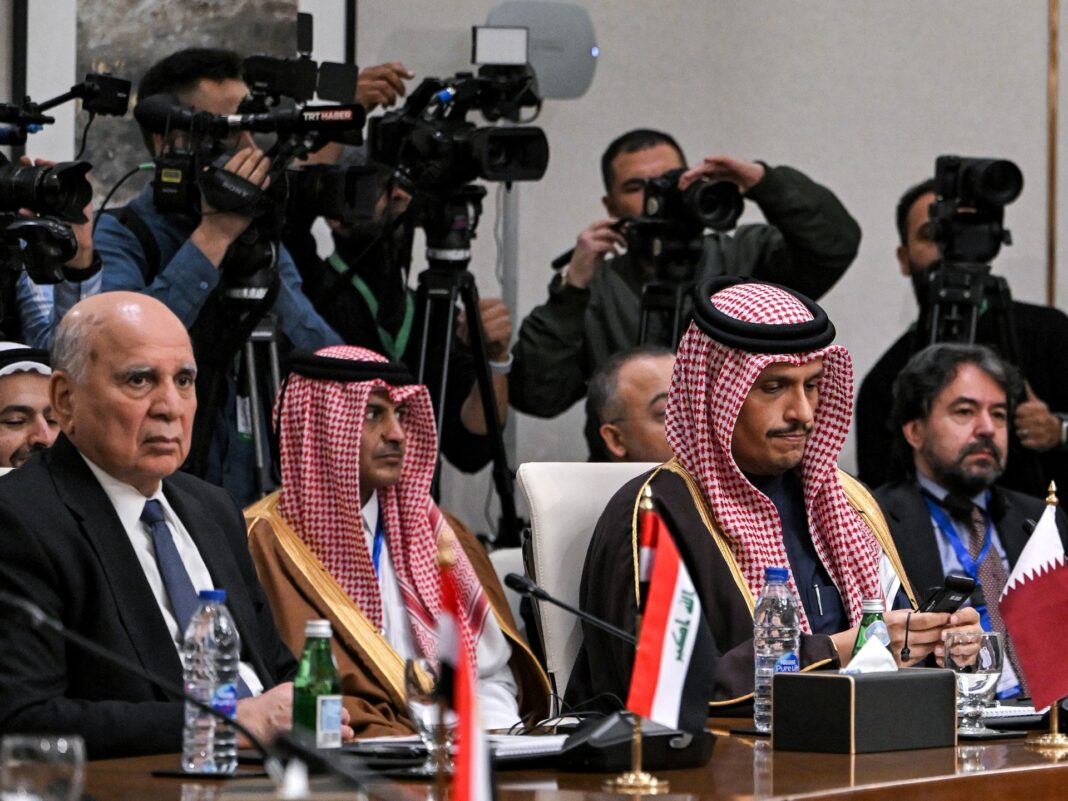Syria’s new government must be ‘inclusive’, say Arab foreign ministers in Jordan, warning against any discrimination.
Top diplomats from eight Arab League countries have agreed at a meeting in Jordan to “support a peaceful transition process” in Syria following President Bashar al-Assad’s overthrow.
Foreign ministers from Jordan, Saudi Arabia, Iraq, Lebanon, Egypt, the UAE, Bahrain and Qatar issued a joint statement on Saturday after they met in the Jordanian Red Sea port of Aqaba.
They said “all political and social forces” must be represented in the new Syrian government and warned against “any ethnic, sectarian or religious discrimination” and called for “justice and equality for all citizens”.
The political process in Syria should be supported by “the United Nations and the Arab League, in accordance with the principles of Security Council Resolution 2254”, a resolution in 2015 which set out a roadmap for a negotiated settlement, the statement said.
The Arab diplomats also attended a separate meeting in Aqaba that included US Secretary of State Antony Blinken, UN Special Envoy for Syria Geir Pederson and EU foreign policy chief Kaja Kallas, and Turkish Foreign Minister Hakan Fidan.
That meeting also called for an inclusive and representative government that respects the rights of minorities and does not offer “a base for terrorist groups”, according to Blinken, who spoke at a news conference.
“Today’s agreement sends a unified message to the new interim authority and parties in Syria on the principles crucial to securing much-needed support and recognition,” he said.
The talks come following the fall of al-Assad after a lightning offensive by the opposition group Hayat Tahrir al-Sham (HTS) last week.
Rebuilding institutions and forming an inclusive Syria are key terms from the Arab diplomats which “overlap with a lot of the positions of other dignitaries in attendance today in Aqaba”, said Al Jazeera’s Nour Odeh, reporting from Jordan’s capital, Amman.
“Nobody wants to see Syria break into several countries,” she added. “They want to see a stable Syria that can welcome back the millions of refugees, and they’re offering their support, political, financial and humanitarian.”
According to their statement, the Arab ministers said state institutions must be preserved to stop Syria from “slipping into chaos”, also calling to boost joint “efforts to combat terrorism … as it poses a threat to Syria and to the security of the region and the world”.
They also condemned “Israel’s incursion into the buffer zone with Syria”, its air strikes in Syria, and demanded “the withdrawal of Israeli forces” from Syrian territory.
Inclusiveness is ‘critical’
Following al-Assad’s removal, a transitional government installed by the rebel forces has insisted the rights of all Syrians will be protected, as will the rule of law.
This will be fundamental for post-al-Assad Syria to avoid past mistakes, according to Labib al-Nahhas, director of the Syrian Association for Citizens’ Dignity, which advocates for the rights of Syrian refugees.
“The key to success in such a critical phase is inclusiveness, and not handing the country back to a single party or a single person because that was the origin of the problem that we had – that was the genesis of how we got here after 50 years of dictatorship,” al-Nahhas told Al Jazeera.
“The behaviour of the Syrian population in general, and the rebels specifically, going into the cities, even going into minority areas. I think it was exemplary,” al-Nahhas said, adding that there have so far only been scattered reports about retribution or vindictive acts.
The director said the international community must play a role in safeguarding Syria’s inclusiveness process.







